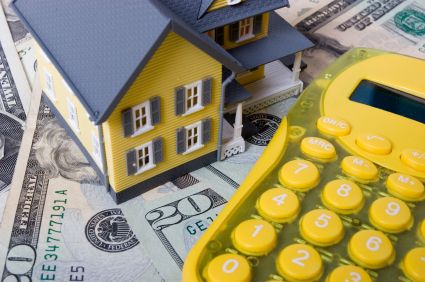<p style="text-align: justify;">If you&#8217;re self-employed, you may have heard that it&#8217;s difficult to get approved for mortgages. Unfortunately, this is true. That doesn&#8217;t mean you can&#8217;t qualify though. However, you must learn what no to do and what to do to help your chances when applying for your mortgage.</p>
<h3 style="text-align: justify;"><strong>Why Do Self-Employed Workers Have a Harder Time?</strong></h3>
<p style="text-align: justify;">The biggest reason self-employed workers have a harder time qualifying for a home loan is they usually have an unsteady income. In other words, there&#8217;s a good chance you don&#8217;t bring in the same amount of money each month and this worries lenders. Lenders are more apt to loan to those that bring home the same amount on their paycheck each week.<!--more--></p>
<h3 style="text-align: justify;"><strong>What Do Banks Need for You to Get Qualified?</strong></h3>
<p style="text-align: justify;">The first thing the bank needs is 2 years of tax returns. You cannot simply print copies and take these into the bank. Instead, you&#8217;ll need to fill out Form 4506-T with the IRS, which allows lenders to obtain copies of your tax return directly from the IRS. You also need to prove that your business exists. This can be done with copies of your 1099 forms, a statement from your accountant, a business license, and even a 1099-K from PayPal.</p>
<h3 style="text-align: justify;"><strong>How Can Deductions Hurt Your Chances?</strong></h3>
<p style="text-align: justify;">According to information from mortgages.com, you might enjoy reducing the amount of income on your taxes so that you have less taxes to pay, but this can hurt your chances of qualifying for a home loan. The reason is because it makes it appear that you&#8217;re bringing in less money each year. In other words, if you claim to bring in $50,000 in sales, but have $40,000 in expenses, you&#8217;re going to have a hard time getting a loan.</p>
<h3 style="text-align: justify;"><strong>How Does the Bank Look at Income</strong>?</h3>
<p style="text-align: justify;">Let&#8217;s say that two years ago, your net income was $60,000 and the next year it was $30,000. Even if you&#8217;re making closer to $60,000 this year, the bank will look at the two previous years and average the two, resulting in a net income of $45,000.</p>
<h3 style="text-align: justify;"><strong>How Can You Improve Your Chances?</strong></h3>
<p style="text-align: justify;">There are a number of things you can do to improve your chances. First of all, if you have a co-applicant who has an income that will offset your low income, that will greatly improve your chances. You also want to make sure you have an excellent credit score of 720 or higher. Having at least 6 months of expenses in an emergency savings account will prove you&#8217;re responsible and having at least a 20% down payment will prove that you&#8217;re less likely to walk away from the investment.</p>
<p style="text-align: justify;">Don&#8217;t get discouraged about being self-employed. Being self-employed doesn&#8217;t mean you can&#8217;t get a home loan, it just means that all your ducks need to be in a perfect row before you can make it happen.</p>

Self-Employed Individuals and Mortgages: Can You Get One?
